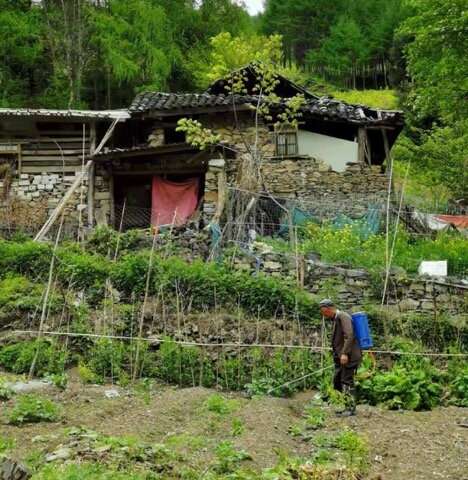 Returning croplands to forests is a sustainability gold standard to mitigate climate change impacts and promote conservation. That is, new research shows, unless you're a poor farmer.
Returning croplands to forests is a sustainability gold standard to mitigate climate change impacts and promote conservation. That is, new research shows, unless you're a poor farmer.Foodfarmnewstv
FADAMA 111 PROJECT ADDITIONAL FINANCING
Bestchange
Search This Blog
Labels
- News (461)
- Images speak (42)
- Press Release (39)
- livestock (31)
- FACAN (29)
- Editorial (25)
- GM (20)
- Seed (20)
- Biotechnology (19)
- wheat (16)
- Research (15)
- Cassava (14)
- AFAN (13)
- Global news (12)
- Special Report (12)
- Rice (11)
- Image Speaks (9)
- Maize (9)
- Soil (9)
- Yam (8)
- Bt cowpea (7)
- Coconut (7)
- Fertilizer (7)
- Cocoa (6)
- Disease (6)
- Ginger (6)
- Potato (6)
- World Soil Day (6)
- Animals (5)
- Apple (5)
- Oil Palm (5)
- Tomatoe (5)
- new (5)
- Cashew (4)
- Climate change (4)
- Fish (4)
- NCARD (4)
- Organic agric (4)
- World Food Day (4)
- Interview (3)
- National Council meeting on Agriculture. (3)
- Plant & genes (3)
- Plant genes (3)
- Project (3)
- Sesame (3)
- Shea butter (3)
- AI Research on Agriculture (2)
- Achia (2)
- African Cherry (2)
- Communique (2)
- Cotton (2)
- Extension services (2)
- Gene editing (2)
- HAPPY NEW YEAR (2)
- Horticulture (2)
- Insurance (2)
- Kenaf (2)
- Opinion (2)
- Sorghum (2)
- Sunflower (2)
- Tomato (2)
- Turmeric (2)
- bt cotton (2)
- seasons greetings (2)
- Artemesia (1)
- Biodiversity (1)
- Birds (1)
- Carrot (1)
- Discovery (1)
- Donkey (1)
- Facts sheets (1)
- Flash Flood (1)
- GES (1)
- GMO Rice (1)
- Garlic (1)
- Genetic (1)
- Groundnut (1)
- Jute bag (1)
- Locust bean (1)
- MERRY XMAS (1)
- Machinery (1)
- Mango (1)
- Milk (1)
- Okra (1)
- Post-harvest losses/ Food Waste (1)
- Presentation (1)
- Seaweed (1)
- Senate (1)
- Soybean (1)
- Tumeria (1)
- Walnut (1)
- flood (1)
- fruits (1)
- millet (1)
- water (1)
Total Pageviews
SPONSORED

Nigerian Institute of Soil Science- NISS
Translate Food Farm News to Hausa, Igbo, Yoruba and over 100 Languages
Latest News
Thursday, 2 January 2020
Conservation's hidden costs take bite out of benefits
 Returning croplands to forests is a sustainability gold standard to mitigate climate change impacts and promote conservation. That is, new research shows, unless you're a poor farmer.
Returning croplands to forests is a sustainability gold standard to mitigate climate change impacts and promote conservation. That is, new research shows, unless you're a poor farmer.Wednesday, 1 January 2020
Mowing urban lawns less intensely increases biodiversity, saves money and reduces pests
Tuesday, 31 December 2019
Stand out from the herd: How cows communicate through their lives
Farmers might finally be able to answer the question: How now brown cow?
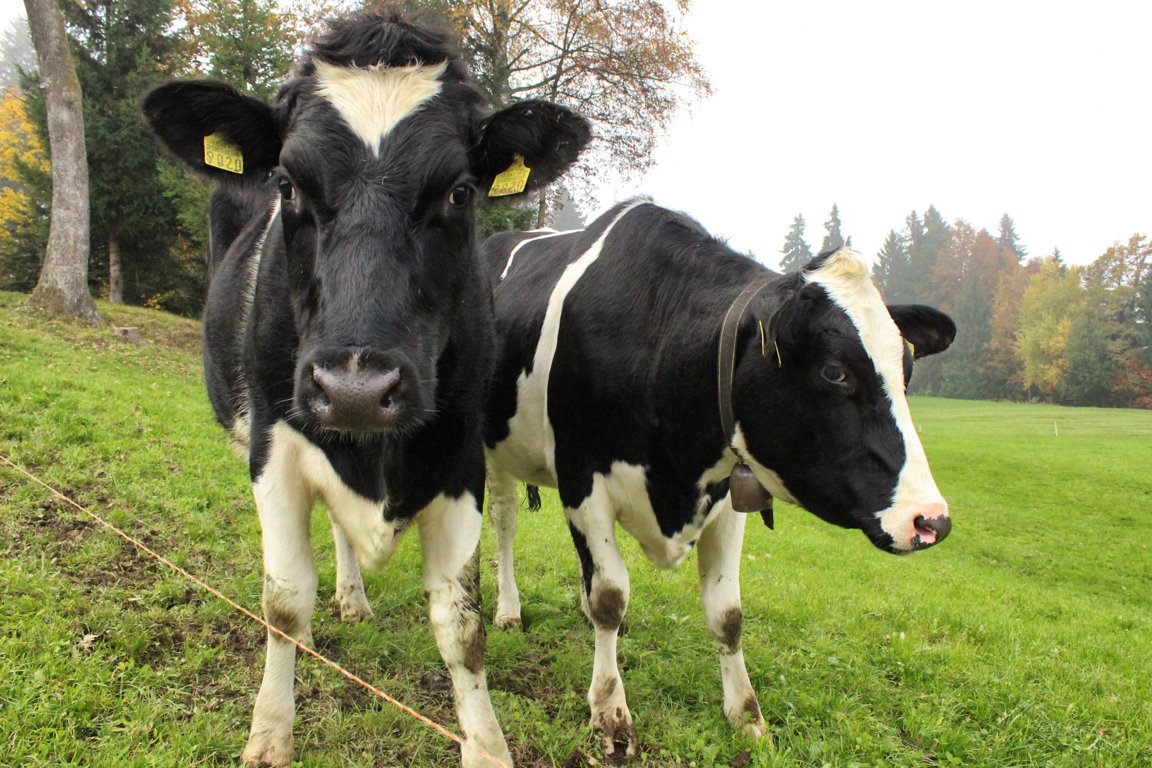
Research at the University of Sydney has shown that cows maintain individual voices in a variety of emotional situations.

Research at the University of Sydney has shown that cows maintain individual voices in a variety of emotional situations.
Monday, 30 December 2019
Comparing heirloom and modern wheat effects on gut health
 Amid concerns about gluten sensitivity, increasing numbers of people are avoiding wheat. Most have not been diagnosed with a wheat-related medical condition, yet they seem to feel better when they don't eat gluten-containing foods.
Amid concerns about gluten sensitivity, increasing numbers of people are avoiding wheat. Most have not been diagnosed with a wheat-related medical condition, yet they seem to feel better when they don't eat gluten-containing foods. Sunday, 29 December 2019
Fossils of the future to mostly consist of humans, domestic animals
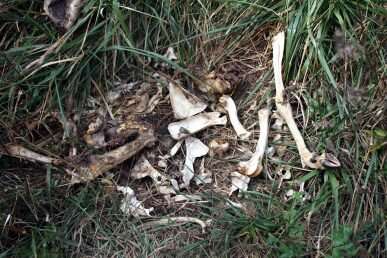 As the number and technology of humans has grown, their impact on the natural world now equals or exceeds those of natural processes, according to scientists.
As the number and technology of humans has grown, their impact on the natural world now equals or exceeds those of natural processes, according to scientists.Saturday, 28 December 2019
Agricultural parasite avoids evolutionary arms race, shuts down genes of host plants

A parasitic plant has found a way to circumvent an evolutionary arms race with the host plants from which it steals nutrients, allowing the parasite to thrive on a variety of agriculturally important plants. The parasite dodder, an agricultural pest found on every continent, sends genetic material into its host to shut down host defense genes.
Friday, 27 December 2019
Plant-eating insects disrupt ecosystems and contribute to climate change
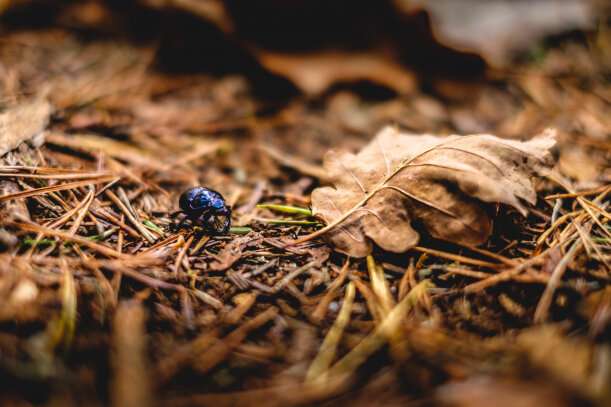
A new study from Lund University in Sweden shows that plant-eating insects affect forest ecosystems considerably more than previously thought. Among other things, the insects are a factor in the leaching of nutrients from soil and increased emissions of carbon dioxide. The researchers also establish that the temperature may rise as a result of an increase in the amount of plant-eating insects in some regions.
Thursday, 26 December 2019
Grain traits traced to 'dark matter' of rice genome

Domesticated rice has fatter seed grains with higher starch content than its wild rice relatives -- the result of many generations of preferential seed sorting and sowing. But even though rice was the first crop to be fully sequenced, scientists have only documented a few of the genetic changes that made rice into a staple food for more than half the world's population.
Wednesday, 25 December 2019
Fungi could reduce reliance on fertilizers
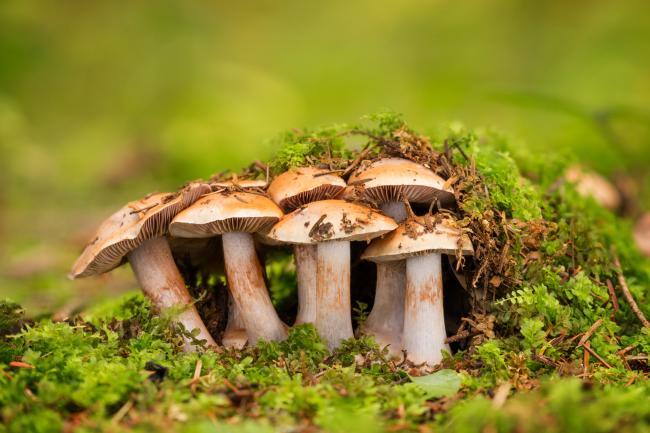 Introducing fungi to wheat boosted their uptake of key nutrients and could lead to new, 'climate smart' varieties of crops, according to a new study.
Introducing fungi to wheat boosted their uptake of key nutrients and could lead to new, 'climate smart' varieties of crops, according to a new study.
Subscribe to:
Posts (Atom)





